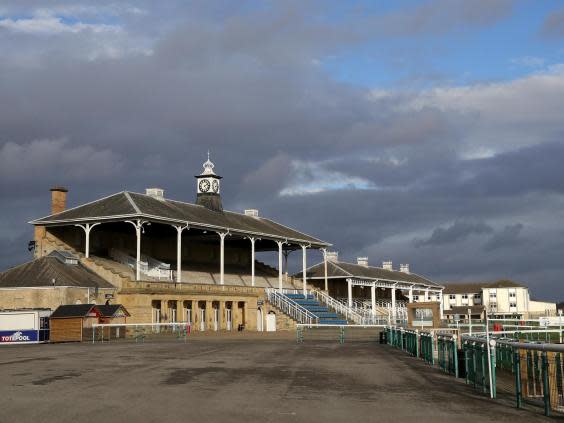Horse racing won't return until Wednesday at the earliest, BHA announces
The British Horseracing Authority (BHA) has said racing will not resume in Britain until Wednesday 13 February at the earliest after an outbreak of equine flu was confirmed.
A statement from BHA read: "The BHA’s veterinary team has today been in contact with more than 50 trainers and veterinarians to allow it to make an informed assessment of the risk of equine influenza spreading.
"Whilst no further positive tests have been received, at least three more days are required before it will be possible to make a decision about whether it is safe to resume racing.
"The disease can take up to three days before symptoms are visible, meaning it will take until Sunday at the earliest before the BHA can gather all the information required. This approach will allow samples to be collected and assessed by the Animal Health Trust in order that a fully informed decision can be made on Monday.
"This may then allow declarations to take place on Tuesday in time for racing on Wednesday, with 24 hour declarations for all fixtures on this day, should racing be able to resume. Declarations for Thursday would revert to the usual procedures."
The BHA made the decision to cancel all Thursday's cards on Wednesday night after the Animal Health Trust confirmed three positive tests from vaccinated horses in an active racing yard.
In an initial statement, the BHA reported horses from the infected yard raced on Wednesday at Ayr and Ludlow, adding identification of the virus in vaccinated animals presented a "cause for significant concern".
Donald McCain's yard was the only one represented at both tracks.
Thursday's cancellations come less than five weeks before the start of this year's Cheltenham Festival - the annual highlight of the National Hunt calendar - while Wolverhampton, due to host an all-weather Flat card on Saturday, has announced the course will not do so.
Inevitably, until the situation becomes clearer, for thousands of racing followers - and of course those directly involved in the industry - there will be uncomfortable echoes of the foot-and-mouth crises of 1967 and 2001.
On each occasion, the racing calendar was affected for two months - and in 2001, the Cheltenham Festival was abandoned.
In the immediate future on this occasion, a packed weekend of Cheltenham trials and other big races is scheduled at Newbury, Warwick, Musselburgh and in Ireland.

The governing body's statement added: "The BHA is presently communicating with yards potentially exposed to ensure appropriate quarantine and biosecurity measures are put in place and horse movements restricted to avoid possible further spread of the disease.
"The full extent of potential exposure is unknown, and we are working quickly to understand as much as we can to assist our decision-making."
The action to cancel Thursday's races was taken with unanimous support of the BHA's industry veterinary committee - affecting meetings at Huntingdon, Doncaster, Ffos Las and Chelmsford.
Wolverhampton then issued an update via Twitter, announcing this weekend's card will not take place.
It read: "Following today's announcement by the BHA Saturday's meeting is cancelled - we will be working with BHA and Animal Health Trust to make sure that our racecourses take every measure to maintain high levels of biosecurity."
Racing was, however, set to go ahead in Ireland at Thurles on Thursday.
An update on the track's official Twitter account read: "Racing goes ahead as planned here today. First race off at 1:15."
Equine influenza is a highly infectious disease of horses, mules and donkeys. Symptoms in non-immune animals include high fever, coughing and nasal discharge.
PA

 Yahoo Sport
Yahoo Sport 





































